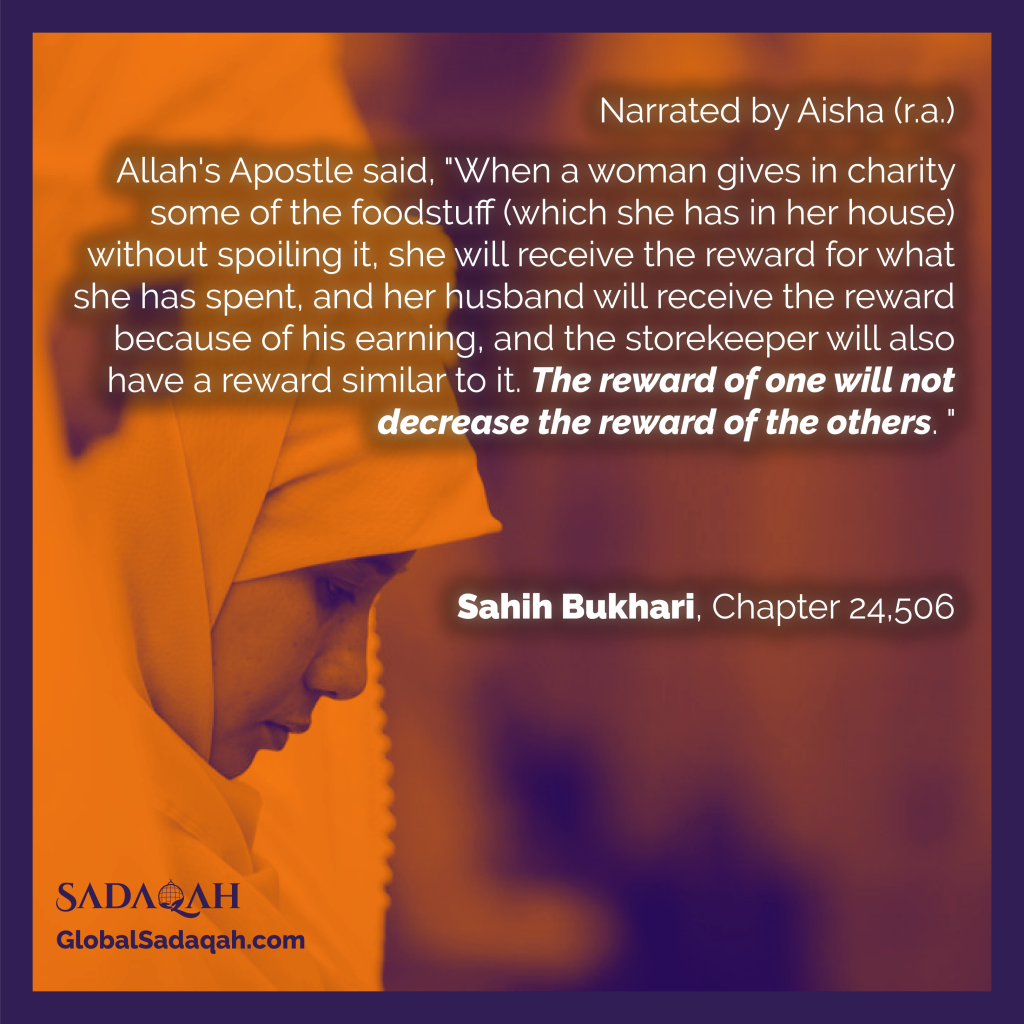Being one of the main pillars of Islam, a lot has been said and discussed about Zakat. This blog will try to cover several Zakat hadiths, discussing the various aspects of it. Let’s enlighten ourselves together!
Obligations of Zakat
Narrated by Jarir bin ‘Abdullah

I gave the pledge of allegiance to the Prophet (pbuh) for offering prayer perfectly, giving Zakat and giving good advice to every Muslim.
(Sahih Bukhari, Chapter 24, 484)
Narrated by Abu Burda
From his father from his grandfather that the Prophet (pbuh) said, “Every Muslim has to give in charity.” The people asked, “O Allah’s Prophet! If someone has nothing to give, what will he do?” He said, “He should work with his hands and benefit himself and also give in charity (from what he earns).” The people further asked, “If he cannot find even that?” He replied, “He should help the needy who appeal for help.” Then the people asked, “If he cannot do that?” He replied, “Then he should perform good deeds and keep away from evil deeds and this will be regarded as charitable deeds.”
(Sahih Bukhari, Chapter 24, 524)
The above hadiths make it evident that Zakat is compulsory upon every abled Muslims.
Recipients of Zakat
Narrated by Abu Huraira (r.a.)
The Prophet (pbuh) said, “The best charity is that which is practiced by a wealthy person. And start giving first to your dependents.”
(Sahih Bukhari, Chapter 24, 507)
Narrated by Abu Huraira (r.a.)
Allah’s Apostle (pbuh) said, “A man said that he would give something in charity. He went out with his object of charity and unknowingly gave it to a thief. Next morning the people said that he had given his object of charity to a thief. (On hearing that) he said, “O Allah! All the praises are for you. I will give alms again.” And so he again went out with his alms and (unknowingly) gave it to an adulteress. Next morning the people said that he had given his alms to an adulteress last night. The man said, “O Allah! All the praises are for you. (I gave my alms) to an adulteress. I will give alms again.” So he went out with his alms again and (unknowingly) gave it to a rich person. (The people) next morning said that he had given his alms to a wealthy person. He said, “O Allah! All the praises are for you. (I had given alms) to a thief, to an adulteress and to a wealthy man.” Then someone came and said to him, “The alms which you gave to the thief, might make him abstain from stealing, and that given to the adulteress might make her abstain from illegal sexual intercourse (adultery), and that given to the wealthy man might make him take a lesson from it and spend his wealth which Allah has given him, in Allah’s cause.”
(Sahih Bukhari, Chapter 24, 502)
Importantly, there are eight eligible groups listed, to whom Zakat can be given.
Zakatable Items
Narrated by Ibn Abbas (r.a.)
I am a witness that Allah’s Apostle offered the Eid prayer before delivering the sermon and then he thought that the women would not be able to hear him (because of the distance), so he went to them along with Bilal who was spreading his garment. The Prophet (pbuh) advised and ordered them to give in charity. So the women started giving their ornaments (in charity). (The sub-narrator Aiyub pointed towards his ears and neck meaning that they gave ornaments from those places such as earrings and necklaces.)
(Sahih Bukhari, Chapter 24, 529)
Narrated by Anas (r.a.)
Abu Bakr (r.a.), wrote to me about the Zakat which Allah had ordered His Apostle to observe: Whoever had to pay Jahda (Jahda means a four-year-old she-camel) as Zakat from his herd of camels and he had not got one, and he had Hiqqa (three-year-old she-camel), that Hiqqa should be accepted from him along with two sheep if they were available or twenty Dirhams (one Durham equals about 1/4 Saudi Riyal) and whoever had to pay Hiqqa as Zakat and he had no Hiqqa but had a Jadha, the Jadha should be accepted from him, and the Zakat collector should repay him twenty Dirhams or two sheep; and whoever had to pay Hiqqa as Zakat and he had not got one, but had a Bint Labun (two-year-old she-camel), it should be accepted from him along with two sheep or twenty Dirhams; and whoever had to pay Bint Labun and had a Hiqqa, that Hiqqa should be accepted from him and the Zakat collector should repay him twenty Dirhams or two sheep; and whoever had to pay Bint Labun and he had not got one but had a Bint Makhad (one-year-old she camel), that Bint Makhad should be accepted from him along with twenty Dirhams or two sheep.
(Sahih Bukhari, Chapter 24, 533)
Scholars have suggested Zakat be paid in the form for which it is being paid. For example, if it is paid for wealth it can be given in the form of gold / cash, and if it is paid for animals, it can be given in the form of animals etc.
Exceptions on Zakat
Narrated by Abu Huraira (r.a.)
Allah’s Apostle said, “There is no Zakat either on a horse or a slave belonging to a Muslim”
(Sahih Bukhari, Chapter 24, 542)
Reward of Zakat

Narrated by Aisha (r.a.)
Allah’s Apostle said, “When a woman gives in charity some of the foodstuff (which she has in her house) without spoiling it, she will receive the reward for what she has spent, and her husband will receive the reward because of his earning, and the storekeeper will also have a reward similar to it. The reward of one will not decrease the reward of the others. “
(Sahih Bukhari, Chapter 24,506)
Consequences of not giving Zakat
Narrated by Abu Huraira (r.a.) The Prophet (pbuh) said, “Every day two angels come down from Heaven and one of them says, ‘O Allah! Compensate every person who spends in Your Cause,’ and the other (angel) says, ‘O Allah! Destroy every miser.’ “
(Sahih Bukhari, Chapter 24,522)
Narrated by Abu Dhar (r.a.)
Once I went to him (the Prophet) and he said, “By Allah in Whose Hands my life is (or probably said, ‘By Allah, except Whom none has the right to be worshipped) whoever had camels or cows or sheep and did not pay their Zakat, those animals will be brought on the Day of Resurrection far bigger and fatter than before and they will tread him under their hooves, and will butt him with their horns, and (those animals will come in circle): When the last does its turn, the first will start again, and this punishment will go on till Allah has finished the judgments amongst the people.
“(Sahih Bukhari, Chapter 24,539)
Conclusion
It is noteworthy to highlight Zakat is a bridge that connects the Muslims to the beautiful religion of Islam. Zakat acts as the shield that protect Muslims from the evil of the pleasures and splendors of ‘Dunya’ (world) and the key to achieve ultimate success in ‘Akhirah’ (hereafter).
The deed should be done wholeheartedly with sincere intention of pleasing The Almighty Allah SWT.

